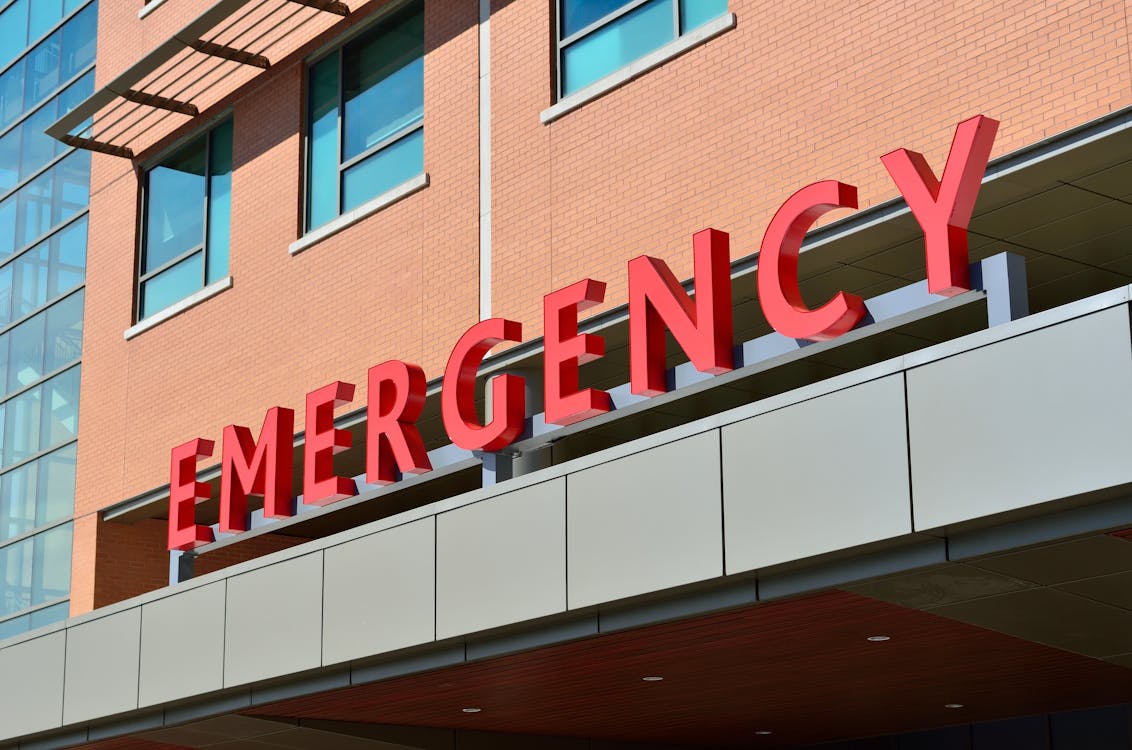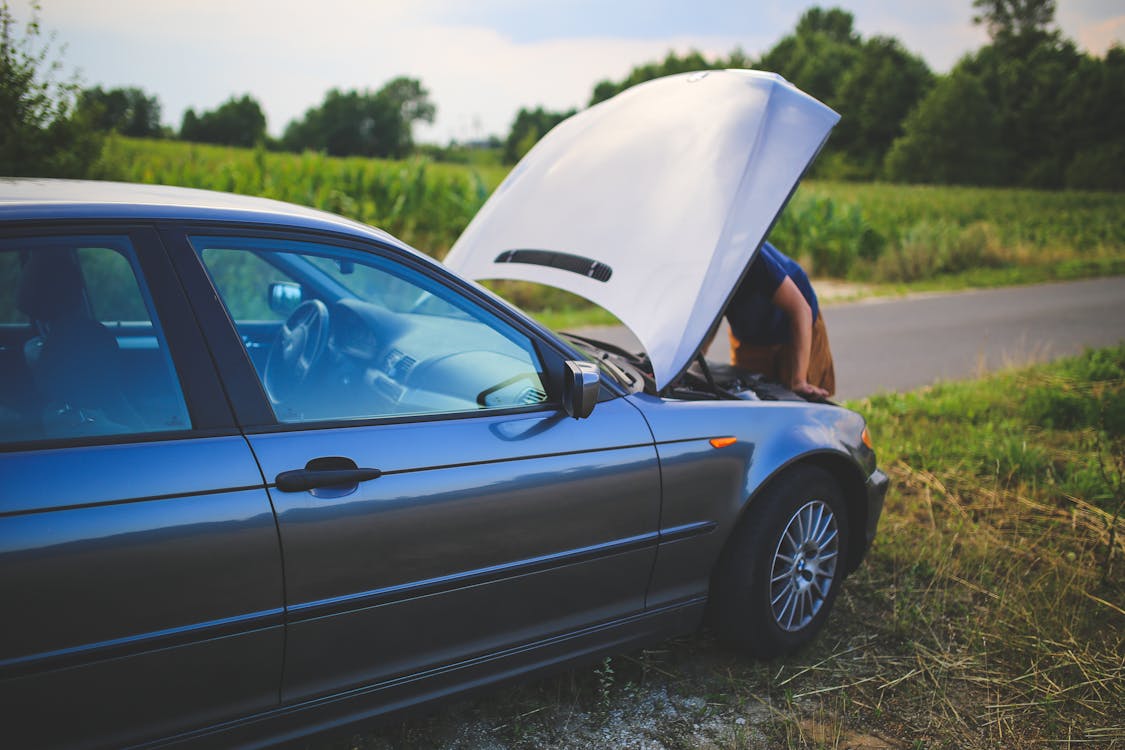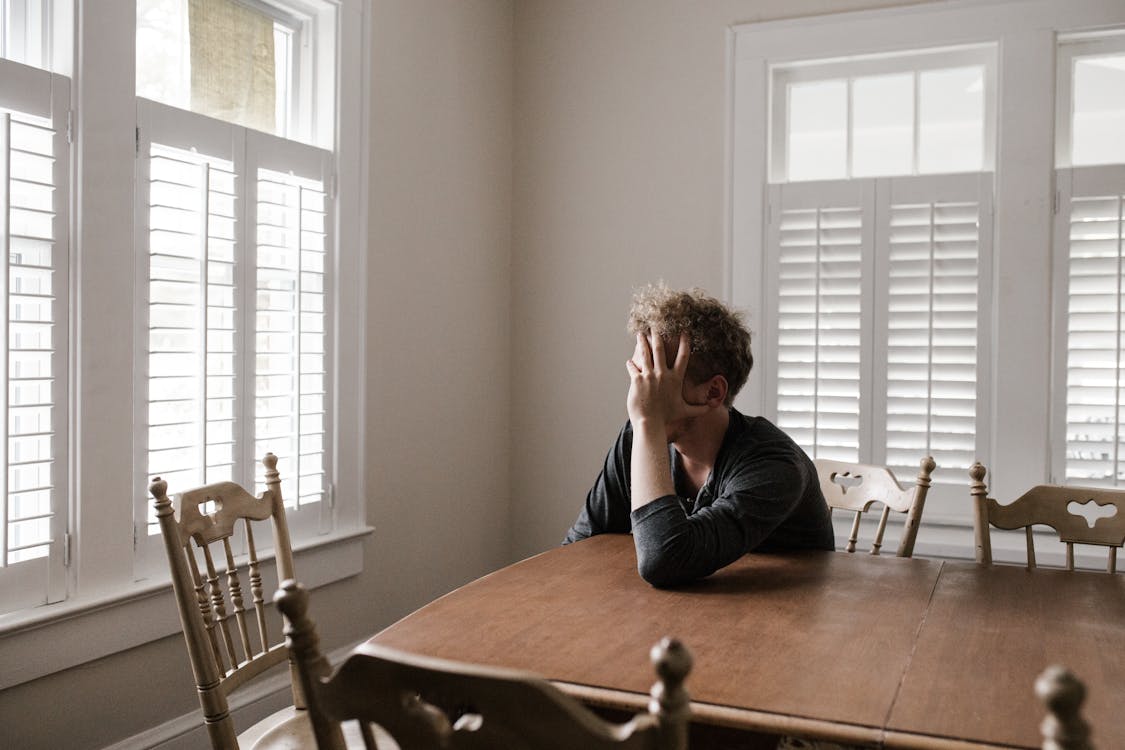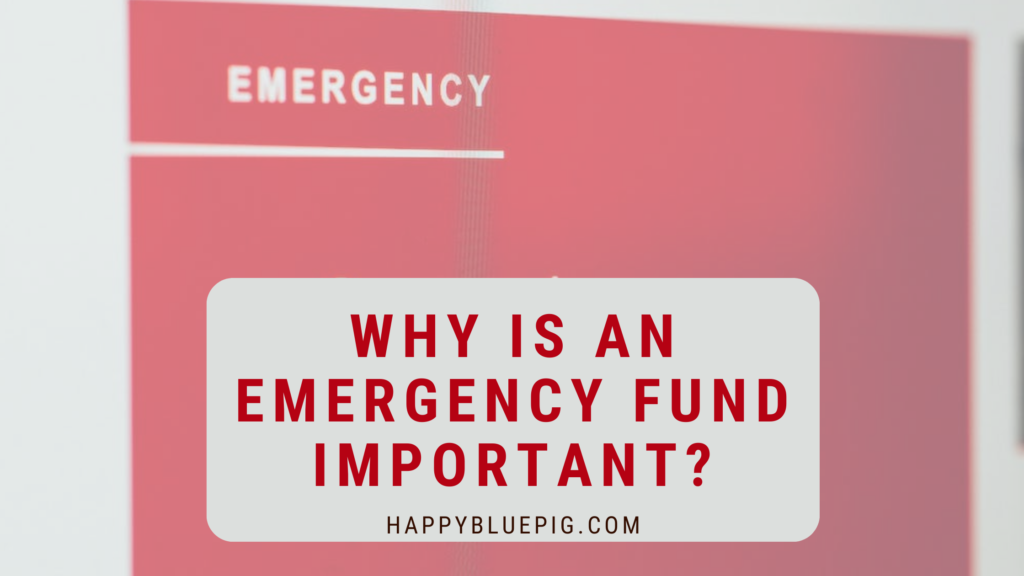In my opinion, the first step when taking control of your finances is creating an emergency fund. Most financial advisors agree with that. You should have an emergency fund before you pay off your debts, before you save for a home, or begin investing. So why is an emergency fund that important? Because your emergency fund is a solid foundation for your finances. Without that foundation, an unexpected financial storm can wipe out everything else you’ve worked towards. So let’s take a closer look at what your emergency fund is for and how to begin setting one up.
This post may contain affiliate links, which means I’ll receive a commission if you purchase through my links, at no extra cost to you. Please read full disclosure for more information.

What is an emergency fund?
An emergency fund is money that you set aside for when emergencies happen. Emergencies may be unpredictable, but it is pretty certain that you will experience a financial emergency at some point in time. You may need to use your emergency fund if a sudden, unexpected home repair is needed immediately. This could include a burst pipe causing water damage or wind damage to a roof. Large, unexpected medical bills may also cause you to dip into your emergency fund. Finally, you need an emergency fund in place in case of loss of income. This could be something temporary like a reduction in hours or seasonal layoff. It also could be a job loss where you need to seek new employment. In short, the emergency fund can help you pay your bills through the difficult seasons of life.
What is NOT an emergency?
It is important that you only use your emergency fund for true emergencies. If you dip into your emergency fund for other reasons, you may not have the money you need when a emergency does come around. This money is not for a fabulous sale, and it is not for costs that you could have anticipated and saved for in advance. Let’s take a look at some examples
Not an emergency
For example, if you know that your car is getting older, you should be planning ahead for increasing maintenance costs. Needing new tires is not an emergency – you know that your tires will wear out so you should plan for that.
Emergency
If your car suddenly breaks down and you need to decide between a new transmission or a new car, that could be an emergency. Ideally, you would have had time to save up, but sometimes your car doesn’t last as long as you expected. If this is the case, and you need to replace the car in order to get to work, then you may need to use your emergency fund. The best strategy is to spend as little of your emergency fund as possible at that time. Buy a car that is functional. Buy the nice car at another time when you have had the chance to save up.
Not an emergency
Replacing a leaky faucet or updating flooring should not come from your emergency room. Yes, the leaky faucet does need to be replaced right away. However, the cost of replacing a faucet is relatively small. Home maintenance should be a part of your budget, and smaller costs like this could be covered. Updating flooring or other improvements to your home should be planned ahead of time, only making the purchase when you’ve saved the full amount.
I understand how desperately you may want to improve your home. We’ve lived with carpeting in the bathroom at our home for 2+ years, which I feel is not sanitary. But replacing the carpet had to be delayed as our older home required other maintenance first, like fixing leaky windows, roof, and siding. But I was glad we stuck with our financial plan and didn’t use any of our emergency fund, because we did have not one, but two emergencies…
Emergency
First, our well pump failed and needed to be replaced, followed by a collapsed well. This qualifies as an emergency, because it is a larger cost and the well pump was not very old. We were in no way anticipating that the well pump would need to be replaced in the next 5 years. Then, a week later, I experienced a miscarriage resulting in medical bills and loss of work for me. It’s tempting, but never go into your emergency fund if it’s not a true emergency. You just never know what will happen next.

Why create an emergency fund before paying off debt?
As I mentioned earlier, I think of the emergency fund as a foundation. Without a solid foundation, a building may collapse and can’t stand up to stress. This is true of your finances and your emergency fund. You make good choices to build up your finances, paying off debt and investing. But if you don’t have an emergency fund, the unexpected things that life throws at you can devastate your finances. With an emergency fund…
You won’t need to take on more debt
If something unexpected comes up, the last thing you want to do is use credit cards or a personal loan to pay it off. These are high interest loans. That’s a huge hit to your goals of becoming and staying debt free. If you have an emergency fund, you won’t need to use credit cards or loans to pay for emergency expenses
It protects your investments
When an emergency expense comes along, you may be tempted to use your retirement savings and investments to pay it. First off, you should always be careful of doing this because you may end up paying high fees or taxes. If your employment suddenly changes, a loan from your 401k could be due in full putting you in a bad situation. Additionally, if your money is not in the market, it is not growing for your retirement. Time is powerful in investing, and this could really set you back.
You will not lose home or vehicle
If you have an emergency, you may not have income to pay the mortgage or rent, or your car payment. Late payments will hurt your credit score, but there are bigger concerns. You may lose your home or apartment. Your car may be repossessed. This could have a devastating effect on your future, not just your finances. If you have an emergency fund, you will have money set aside specifically to cover expenses in case of emergency and protect your assets and future.
You will have peace of mind
When an emergency is happening, you may have a lot on your mind. With confidence that your emergency fund will cover your bills, you will be free to focus on the situation at hand. If you have lost your job, you can focus on the job search without worrying about money. During illness or hospitalization, you can focus on your health and not worry about paying your medical bills and living expenses.

How much do I need?
The most common recommendation is 3-6 months living expenses. This is not 3-6 months income, but how much it takes to cover your essential expenses. Essential expenses include food, housing, and utilities. You don’t need to include items like retirement investing or entertainment in this calculation. If you are in need of the emergency fund, you can forgo investing and entertainment for a short time until you’re back on your feet.
With steady, consistent biweekly or monthly income, you are likely fine with 3 months worth of expenses. If your income is more variable or seasonal, you should aim for closer to 6 months living expenses. Other considerations would be whether it is easy or difficult to find work in your industry. We only keep a 3 month emergency fund because my husband’s income is predictable, and in the case of loss of income, I can easily get work in my profession due to a shortage of workers. It may not be the ideal location, hours, or position, but it would cover our bills.
You may also want a higher emergency fund if you have a high deductible on your health insurance. That way, you will be able to pay for your healthcare in case of emergency and still cover loss of income while you recover. My family is part of a medical cost sharing plan, and we are well-covered. However, we may need to begin making payments for medical bills while waiting a few weeks for our reimbursement. So I like to keep a little extra in our emergency fund so that we’re covered. If you aren’t happy with your health insurance, check out my article on CHM to learn more about how medical cost sharing organizations work.

Keep your emergency fund separate but easily accessible


